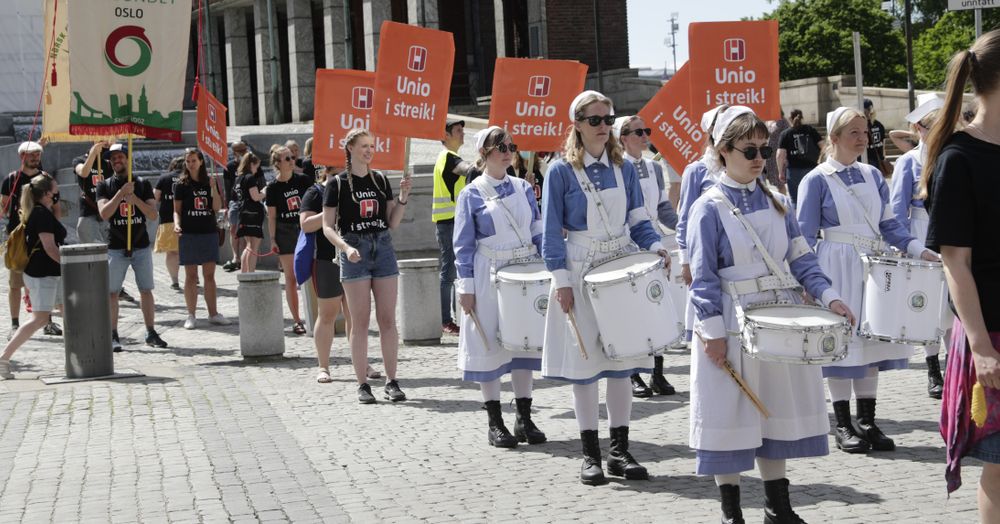Norway
Tjen Folket Media brings a debate article, on the strikes of public workers, that are happening on the bi-annual wage negotiations (in lieu of the bi-annual general negotiations, taking place other years), between the union and the employer.
As is seen in the Scandinavian system of wage negotiations, where the negotiations between the union and the employer is overseen by the state, which regulates the unions and the system of negotiations, where the state can “resolve” conflicts by law. This system is commonly referred to by the social democrats in these countries, as the “Danish Model” in Denmark, the “Swedish Model” in Sweden and the “Norwegian Model” in Norway, to brand it as a national characteristic, and not a system of subordination of the worker’s struggles to be at the service of imperialism, using economism and incorporating elements of corporativism.
The strike has been declared illegal because it is not according to what is allowed by law, since the strike is addressing the lack of teachers, nurses and other trained groups working in the state sector.
Tjen Folket Media points out the outstanding fact, that in this case the state is the employer, so it openly has complete authority over the system of negotiation, and clearly shows the class character of the Norwegian state. The comrades points out that this shows the combattiveness of the masses, the reactionarisation of the state and the revolutionary situation in uneven development expressing itself in Norway.
Denmark
Comrades from Socialistisk Revolution report that fliers on the struggle of the Palestinian people have been distributed in proletarian neighborhoods in Copenhagen, and have shared the text from the flier.
Finland
The head of cybersecurity at the Chinese telecommunications company Huawei in Finland, has in an interview stated that it is should be considered to increase working hours to make Finland more competitive with China and the USA, seriously proposing a seven day work week, to match the 80 hour work weeks it has in Shenzhen, China and the San Francisco bay area in the USA, he boasts that “I work 80 hours a week all the time and I have not had a summer vacation in four years”. While it might seem preposterous to suggest a doubling of the normal full time working hours, the proposal has been discussed in Finnish bourgeois media. What is clear is that the imperialist only sees the proletariat as their wage-labors, they only see them as a tool to enrich themselves and thinks we should be grateful that they “keep us competitive”, which is in fact their stockholders trying to increase the surplus value they harvest from the proletariat. According to a survey among the member of the union of the service workers (PAM), 40% would like to have more working hours, because many are only hired part time and in this sector stable working hours are rarely obtainable. So the imperialists wish to use the anguish of the masses in the so-called service industry, to fuel their hunger for more capital, the imperialists claim to be the “creators of jobs”, but why not provide the proper training to get the qualified workers they want and plan their production so they can provide better working conditions? No, they want the masses to do everything for them, be qualified with few opportunities to gain such qualifications and once qualified the imperialists want to squeeze their labor to the point where life outside work, hardly exists beyond the tasks required to be ready for work the next day, meanwhile that many are unemployed and unable to get a job. So what the bourgeoisie strives for is not necessarily longer or shorter work weeks, what they strive for is the complete subordination of the proletariat to their demands, that the proletariat should have no expectation or demand to how the production is planned (or lack thereof), that the proletariat and the masses should always bear the load of their failing imperialist system.

